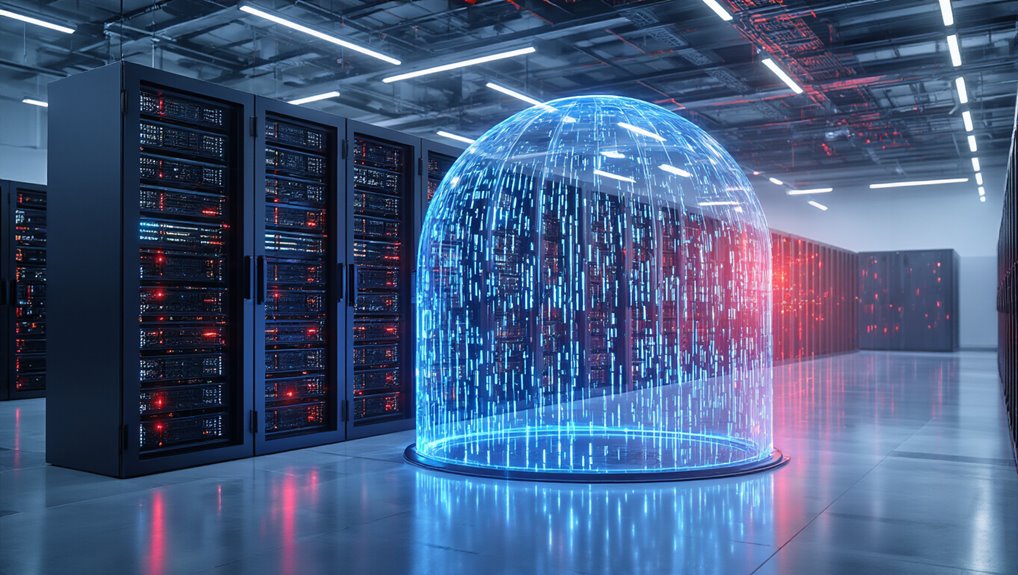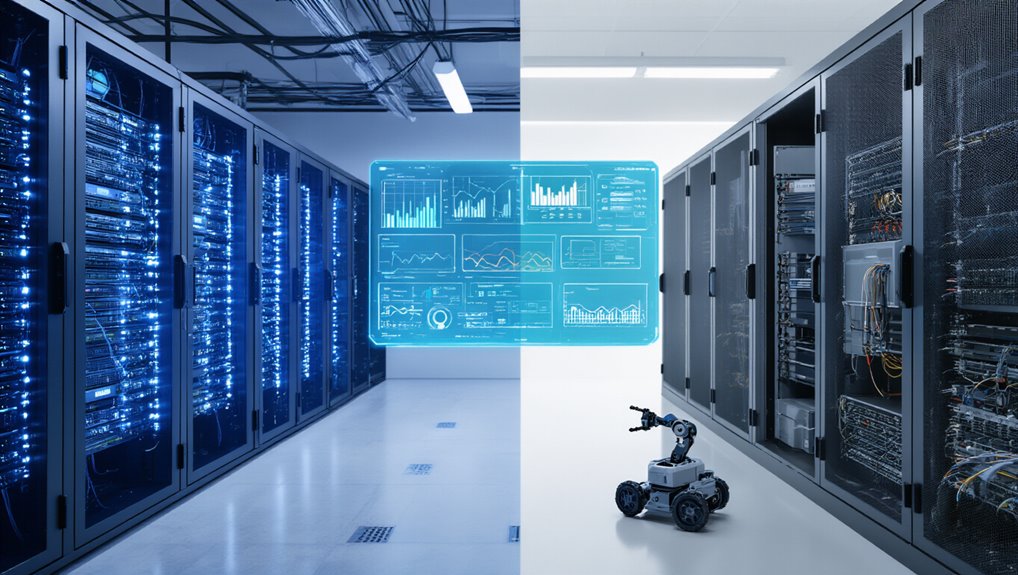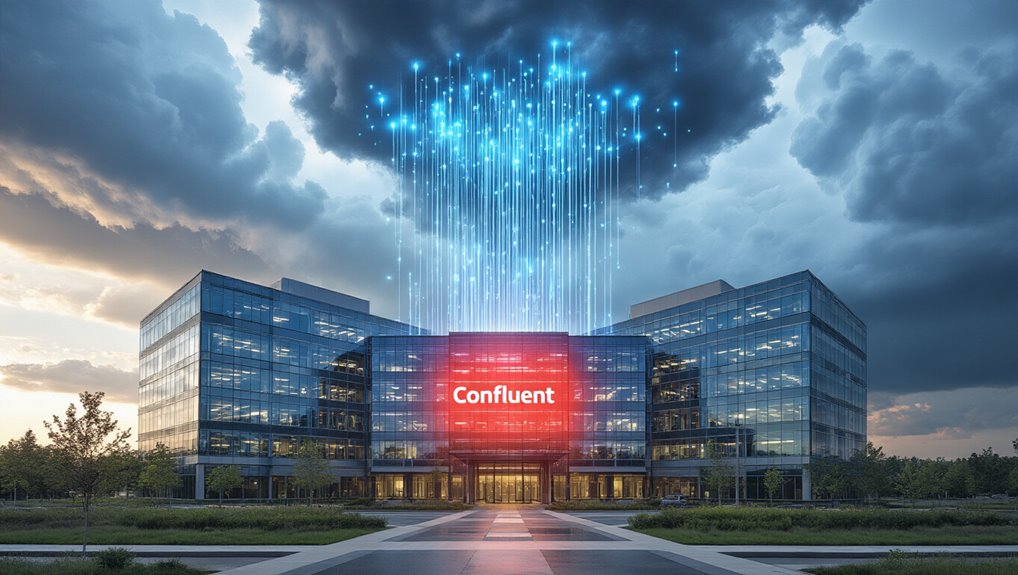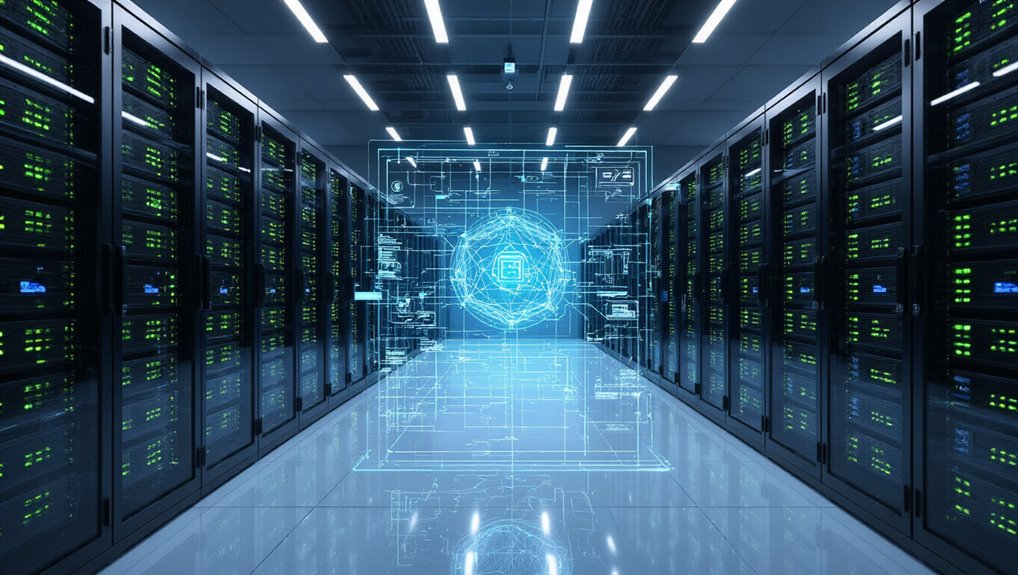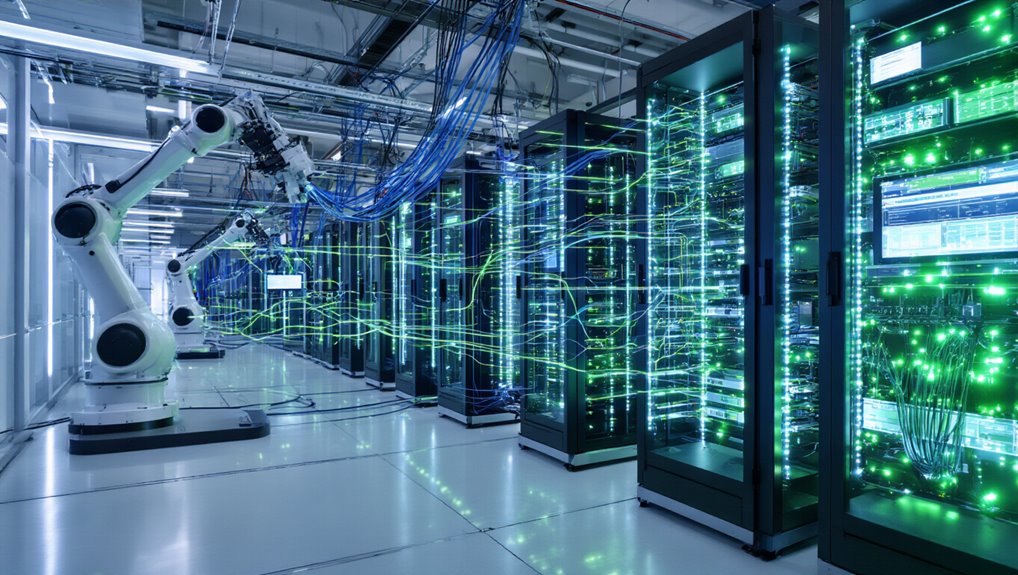As organizations race to harness the transformative power of artificial intelligence, the global AI infrastructure landscape is undergoing unprecedented expansion that will fundamentally reshape IT departments by 2030. Currently valued at approximately $36 billion, the market is projected to surge to between $394-521 billion by decade’s end, representing a compound annual growth rate of up to 30%. This massive growth trajectory signals a future where AI becomes the backbone of IT operations across industries.
AI infrastructure expansion will redefine IT by 2030, growing from $36 billion to potentially $521 billion as it becomes the operational backbone across industries.
The scale of investment required to realize this AI-driven future is staggering. Data center investments to meet AI computing demands are estimated to reach $6.7 trillion by 2030, with $5.2 trillion specifically allocated to AI workloads. Major technology companies are already committing hundreds of billions toward infrastructure development, while telecom operators plan to invest $77 billion in AI cloud infrastructure over the next five years. The investment ecosystem is further strengthened by support from institutional investors like BlackRock and KKR who are funding significant AI projects.
Despite these dramatic shifts, Gartner analysts maintain that human IT professionals won’t become obsolete. Instead, your role will evolve to focus on governance, ethics, and strategic oversight of AI systems. You’ll need to develop skills in:
- AI system management and maintenance
- Translating business needs into technical requirements
- Ensuring regulatory compliance and ethical AI use
The shift presents significant challenges. Energy consumption remains a critical concern, with AI data centers already consuming approximately 62 TWh annually—about 15% of total data center energy usage. You’ll need to balance computational power with sustainability goals as this footprint grows.
Integration complexities with legacy systems and data security concerns also represent major hurdles. Effective system integration will be crucial for connecting AI solutions with existing hardware and software components while maintaining seamless functionality. The emerging trend toward smaller, domain-specific AI models with reduced computing requirements is reshaping how organizations approach these challenges. Your organization must address these issues while maintaining operational continuity during the shift to AI-managed IT environments.
The coming years will witness AI handling increasingly complex IT tasks—from network management to cybersecurity and application development. While automation will reshape job descriptions, the human element remains irreplaceable for strategic decision-making, creative problem-solving, and ethical oversight in this new AI-powered IT landscape.

